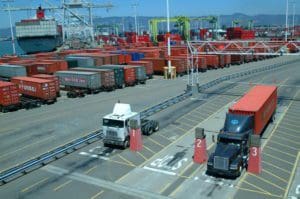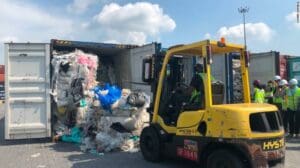 I was on the young side to fully understand how devastating the 1986 World Series loss to the Mets was for Red Sox fans, but I certainly couldn’t escape it growing up. And unfortunately, for one of baseball’s better players over the last 40 years, he couldn’t escape it either. Obviously, I am talking about Red Sox first baseman Bill Buckner. He has forever been remembered as the guy who let the ball go through his legs and lost the World Series. However, this is not the actual case. The Sox blew a 2-run lead in the 10th inning of Game 6 (the Buckner game) as well as a 3-run lead in the 6th inning of Game 7 before succumbing to the Mets. And while we waited a long (long) time, and a few more heartbreaks (the Aaron Boone homerun for example), the Sox finally won the World Series in 2004 (thanks to the greatest comeback in sports history against the Yankees). While Bill Buckner did not want to be involved in the aftermath of that championship, he graciously threw out the first pitch for the home opener following the Red Sox 2007 World Series Championship. Even though he never asked for it (or even wanted it), the city certainly gave him a pardon and apology for all he had been through. Sadly, after a battle with Lewy body dementia, Bill Buckner passed away this past Monday at the age of 69. And now on to this week’s logistics news.
I was on the young side to fully understand how devastating the 1986 World Series loss to the Mets was for Red Sox fans, but I certainly couldn’t escape it growing up. And unfortunately, for one of baseball’s better players over the last 40 years, he couldn’t escape it either. Obviously, I am talking about Red Sox first baseman Bill Buckner. He has forever been remembered as the guy who let the ball go through his legs and lost the World Series. However, this is not the actual case. The Sox blew a 2-run lead in the 10th inning of Game 6 (the Buckner game) as well as a 3-run lead in the 6th inning of Game 7 before succumbing to the Mets. And while we waited a long (long) time, and a few more heartbreaks (the Aaron Boone homerun for example), the Sox finally won the World Series in 2004 (thanks to the greatest comeback in sports history against the Yankees). While Bill Buckner did not want to be involved in the aftermath of that championship, he graciously threw out the first pitch for the home opener following the Red Sox 2007 World Series Championship. Even though he never asked for it (or even wanted it), the city certainly gave him a pardon and apology for all he had been through. Sadly, after a battle with Lewy body dementia, Bill Buckner passed away this past Monday at the age of 69. And now on to this week’s logistics news.
- Amazon expected to purge small suppliers
- Whiskey producers get relief from tariffs
- Port shutdown looms as BC longshore employees get lockout notice
- Daimler Trucks establishes global unit for highly automated driving
- DOT opens comment period on autonomous vehicle regulations
- Plastic waste dumped in Malaysia will be returned to UK, US and others
- Returnly debuts ‘returnless refunds’
- Paladin Drones picks up $1.3m to give first responders live feed of emergencies
![]() Amazon is looking at ways to cut costs and focus on larger wholesale purchasing from major name brands such as P&G, Sony, Lego, and others. As a result, in the coming months, bulk orders for smaller suppliers will begin to dry up. This move will affect thousands of smaller suppliers, many of which already saw a disruption in service a few months ago. While Amazon has not commented on this, people “familiar with the situation” have said that the small businesses that historically relied on Amazon’s reach will no longer be selling in bulk directly to Amazon. Instead, they will need to win sales “one customer at a time.” This is just one of the recent moves by Amazon to get suppliers to sell directly to consumers, which reduces the inventory burden on the company. Additionally, Amazon can collect a commission on every sale a vendor makes, while charging them fees to store, pick, pack, and ship the items.
Amazon is looking at ways to cut costs and focus on larger wholesale purchasing from major name brands such as P&G, Sony, Lego, and others. As a result, in the coming months, bulk orders for smaller suppliers will begin to dry up. This move will affect thousands of smaller suppliers, many of which already saw a disruption in service a few months ago. While Amazon has not commented on this, people “familiar with the situation” have said that the small businesses that historically relied on Amazon’s reach will no longer be selling in bulk directly to Amazon. Instead, they will need to win sales “one customer at a time.” This is just one of the recent moves by Amazon to get suppliers to sell directly to consumers, which reduces the inventory burden on the company. Additionally, Amazon can collect a commission on every sale a vendor makes, while charging them fees to store, pick, pack, and ship the items.
 As I wrote about last year, the Trump tariffs were taking a toll on the American whiskey market. Relief is finally on the way. President Donald Trump has lifted import taxes on Canadian and Mexican steel and aluminum and delayed auto tariffs that would have hurt Japan and Europe. In return, the Canadians and Mexicans agreed to scrap their retaliatory tariffs on US goods, including American whiskey. While this is good news for whiskey distillers, the tariffs on American whiskey in the EU still looms large. This is especially true for those whiskeys in the mid-price range. For bottles in the $25 to $35 range, a $10 – $15 increase will still make sales that much more challenging. However, with whiskey sales skyrocketing globally, moving back to an easy trade situation with Canada and Mexico is clearly a win for US distilleries.
As I wrote about last year, the Trump tariffs were taking a toll on the American whiskey market. Relief is finally on the way. President Donald Trump has lifted import taxes on Canadian and Mexican steel and aluminum and delayed auto tariffs that would have hurt Japan and Europe. In return, the Canadians and Mexicans agreed to scrap their retaliatory tariffs on US goods, including American whiskey. While this is good news for whiskey distillers, the tariffs on American whiskey in the EU still looms large. This is especially true for those whiskeys in the mid-price range. For bottles in the $25 to $35 range, a $10 – $15 increase will still make sales that much more challenging. However, with whiskey sales skyrocketing globally, moving back to an easy trade situation with Canada and Mexico is clearly a win for US distilleries.
 Port strikes have certainly been in the news quite a bit lately. And the it looks like the latest casualty will be the Port of Vancouver. Earlier this week, the BC Maritime Employers Association (BCMEA), which negotiates for the 55 companies that operate port facilities, gave notice to the International Longshore and Warehouse Union of Canada, saying that because of a limited longshore strike that began Monday, it would lock out most of the 6,000 longshore workers at 8 AM on Thursday. The major sticking point in contract talks has been the employers’ desire to increase automation at the port, which the BCMEA sees as an opportunity to eliminate jobs. The lockout won’t affect cruise ship operations or, under federal law, loading and handling of ships at the port’s grain terminals.
Port strikes have certainly been in the news quite a bit lately. And the it looks like the latest casualty will be the Port of Vancouver. Earlier this week, the BC Maritime Employers Association (BCMEA), which negotiates for the 55 companies that operate port facilities, gave notice to the International Longshore and Warehouse Union of Canada, saying that because of a limited longshore strike that began Monday, it would lock out most of the 6,000 longshore workers at 8 AM on Thursday. The major sticking point in contract talks has been the employers’ desire to increase automation at the port, which the BCMEA sees as an opportunity to eliminate jobs. The lockout won’t affect cruise ship operations or, under federal law, loading and handling of ships at the port’s grain terminals.
 With the advancement of autonomous trucks progressing quickly, Daimler Trucks has announced the formation of its Autonomous Technology Group, the newest part of Daimler Trucks’ global effort to put highly automated trucks onto the roads within a decade. The new unit will go into effect on June 1 and will be tasked with developing the overall strategy and implementation of the automated driving roadmap. This roadmap includes research, development, and the infrastructure and network for its highly automated trucks. The project will be responsible for the redundancy in the chassis, enabling the vehicle’s systems to take over the roles required of a professional driver while on the road. It will also take care of the automated driving sensor kit integration (camera, lidar, radar), which are responsible for ensuring that the truck finds its own way on the road.
With the advancement of autonomous trucks progressing quickly, Daimler Trucks has announced the formation of its Autonomous Technology Group, the newest part of Daimler Trucks’ global effort to put highly automated trucks onto the roads within a decade. The new unit will go into effect on June 1 and will be tasked with developing the overall strategy and implementation of the automated driving roadmap. This roadmap includes research, development, and the infrastructure and network for its highly automated trucks. The project will be responsible for the redundancy in the chassis, enabling the vehicle’s systems to take over the roles required of a professional driver while on the road. It will also take care of the automated driving sensor kit integration (camera, lidar, radar), which are responsible for ensuring that the truck finds its own way on the road.
Speaking of autonomous trucks, the US Department of Transportation (DOT) has opened the comment period on autonomous vehicle regulations. The Federal Motor Carrier Safety Administration and the National Highway Traffic Safety Administration each published advance notices of proposed rulemaking in the Federal Register that seek public comment about regulations that may need to be amended, revised, or eliminated to allow the introduction of autonomous vehicles to US highways. The agency is asking the public to comment the following topics regarding autonomous trucks:
- Do the Federal Motor Carrier Safety Regulations require a human driver?
- CDL endorsements for automated driving system (ADS) operators
- Hours of service rules for ADS operators
- Medical qualifications for ADS operators
- Distracted driving and monitoring
- Safe driving
- Inspection, repair and maintenance of ADS-equipped trucks
- Roadside inspections of ADS-equipped vehicles
- Cybersecurity
- Confidentiality of shared information
 As we’ve written about, the world’s oceans contain millions of pounds of plastic waste floating across millions of square miles, with the largest being the Great Pacific Garbage Patch. Finally, some countries are stepping up their efforts to avoid becoming the world’s “dumping ground” for plastics. To that end, Malaysia will return 450 tons of contaminated plastic waste to the countries that shipped it. Nine shipping containers at Port Klang, west of Kuala Lumpur, on Tuesday were found to contain mislabeled plastic and non-recyclable waste, including a mixture of household and e-waste. Yeo Bee Yin, minister of energy, science, technology, environment and climate change, said that the US, UK, Canada, Japan, China, Saudi Arabia, Bangladesh, Netherlands, and Singapore should expect waste products to be returned.
As we’ve written about, the world’s oceans contain millions of pounds of plastic waste floating across millions of square miles, with the largest being the Great Pacific Garbage Patch. Finally, some countries are stepping up their efforts to avoid becoming the world’s “dumping ground” for plastics. To that end, Malaysia will return 450 tons of contaminated plastic waste to the countries that shipped it. Nine shipping containers at Port Klang, west of Kuala Lumpur, on Tuesday were found to contain mislabeled plastic and non-recyclable waste, including a mixture of household and e-waste. Yeo Bee Yin, minister of energy, science, technology, environment and climate change, said that the US, UK, Canada, Japan, China, Saudi Arabia, Bangladesh, Netherlands, and Singapore should expect waste products to be returned.
Returns management has become an increasingly expensive operations for retailers. Returnly, a post-purchase payment company recently announced a new product, Green Returns, to help mitigate the negative environmental impacts of the returns process. The solution is designed to help companies selling items that cannot be reused because these items cannot be resold due to the threat of potential health risks. These products include beauty and intimates products. Considering that the returns process can often times prove more harm than good, Returnly gives brands the opportunity to offer “returnless refunds” in which a customer will be granted a monetary refund for their purchase without having to ship the item back to the company.
And finally, let’s move on to drones, drones, and more drones. We have certainly covered drones here ad nauseum. In one piece, I looked at the applicable commercial application of drones, from last mile deliveries to medical supply deliveries. And while Amazon, Google, and a variety of other logistics companies look at the use case of using drones, one fact remains – medical emergencies have seen the benefits of drones. Paladin Drones has announced another $1.3 million in funding for its drone technology. Paladin’s software allows a drone to deploy to the location of an incident and let first responders scope out the area beforehand. The hope is to do as much data gathering and analysis as possible before any first responder gets on site. While this may not seem like a completely supply chain technology, the data gathered can help first responders quickly assess what equipment, materials, and support they need.
That’s all for this week. Enjoy the weekend, and the song of the week, All Apologies by Nirvana.

















